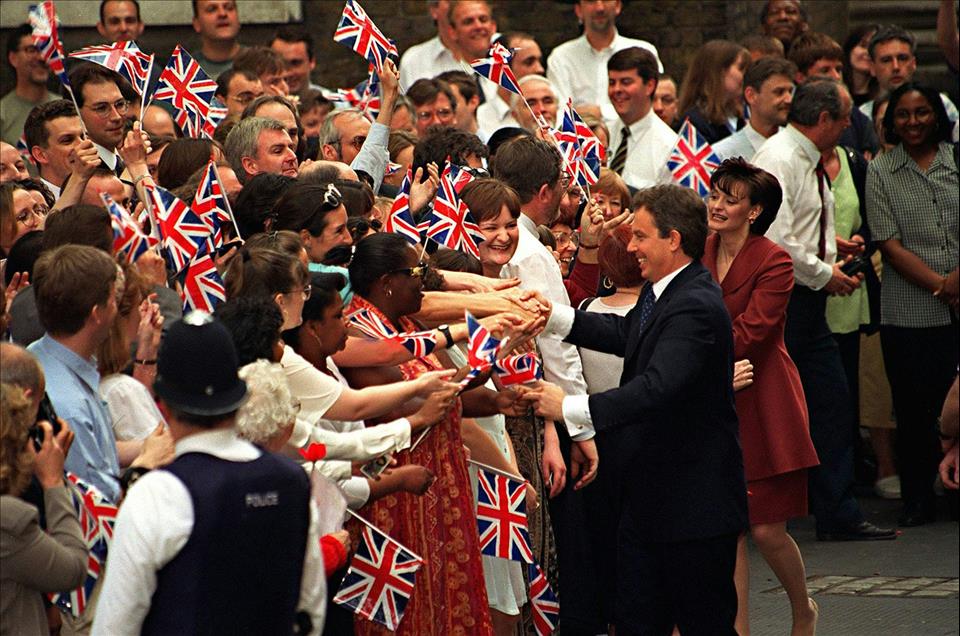
Thatcher, Blair And A Brief History Of Class In British Politics Podcast
In the second part of Know Your Place: what happened to class in British politics, a podcast series from The Conversation Documentaries , we look back at a century of class in British politics to understand why Blair's decision to move Labour away from the working class was such a watershed moment.
The British Labour party was created in 1900 by trade unionists who wanted to give a voice to working class people. At the time, the class structure was rigid and only property-owning men over the age of 21 could vote.
But the rupture of the first world war ushered in universal adult suffrage, and with it, says Mark Garnett, senior lecturer in politics at Lancaster University, a feeling among opponents of the Labour party that it would eventually become the main electoral force. He says:
After the second world war and the election of Clement Attlee as Labour prime minister, class still looked firmly cemented into British political allegiances, as Martin Farr, senior lecturer in contemporary British history at Newcastle University explains.
Thatcher's greatest achievementFor Farr, the political and economic turmoil of the 1970s, ending in the winter of discontent under the Labour government of James Callaghan, marked the beginning of the end of this political arrangement, paving the way for the election of Margaret Thatcher as Conservative prime minister.
After 17 years of Conservative rule, Blair's election in 1997 brought Labour back into power. But its attitude toward its working class base had changed.
Tim Bale, professor of politics at Queen Mary University of London, says Blair's advisers realised that the working class in Britain was shrinking and that, unlike the past, Labour couldn't put together a winning electoral coalition based purely on working-class voters. But he also says they wanted to build a cross-class coalition.
For more analysis, listen to the full episode of Know Your Place: what happened to class in British politics on The Conversation Documentaries, which also includes interviews with the former Labour MPs Reg Race and David Hanson, who is now a member of the House of Lords and minister of state for the Home Office.
A transcript is available on Apple Podcasts.
Know Your Place: what happened to class in British politics is produced and mixed by Anouk Millet for The Conversation. It's supported by the National Centre for Social Research.
Newsclips in the episode from A P Archive , New Labour , British Movietone , British Pathé , SirEdwardHeath and ITN Archive .
Listen to The Conversation Documentaries via any of the apps listed above, download it directly via our RSS feed or find out how else to listen here .

Legal Disclaimer:
MENAFN provides the
information “as is” without warranty of any kind. We do not accept
any responsibility or liability for the accuracy, content, images,
videos, licenses, completeness, legality, or reliability of the information
contained in this article. If you have any complaints or copyright
issues related to this article, kindly contact the provider above.


















Comments
No comment